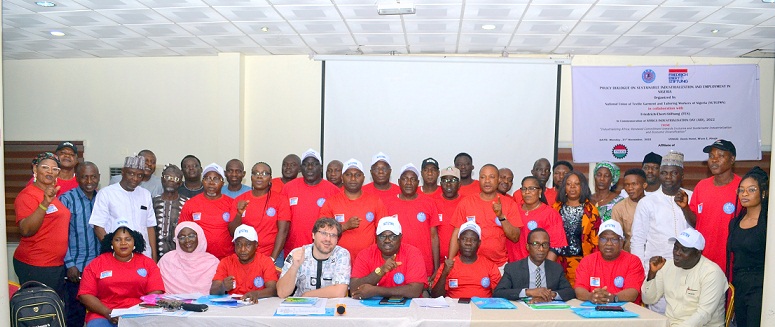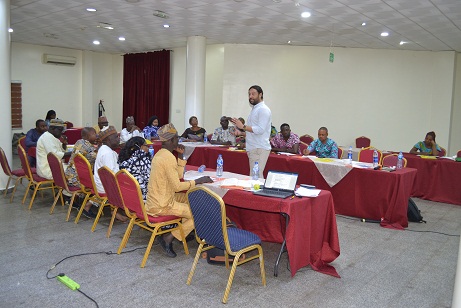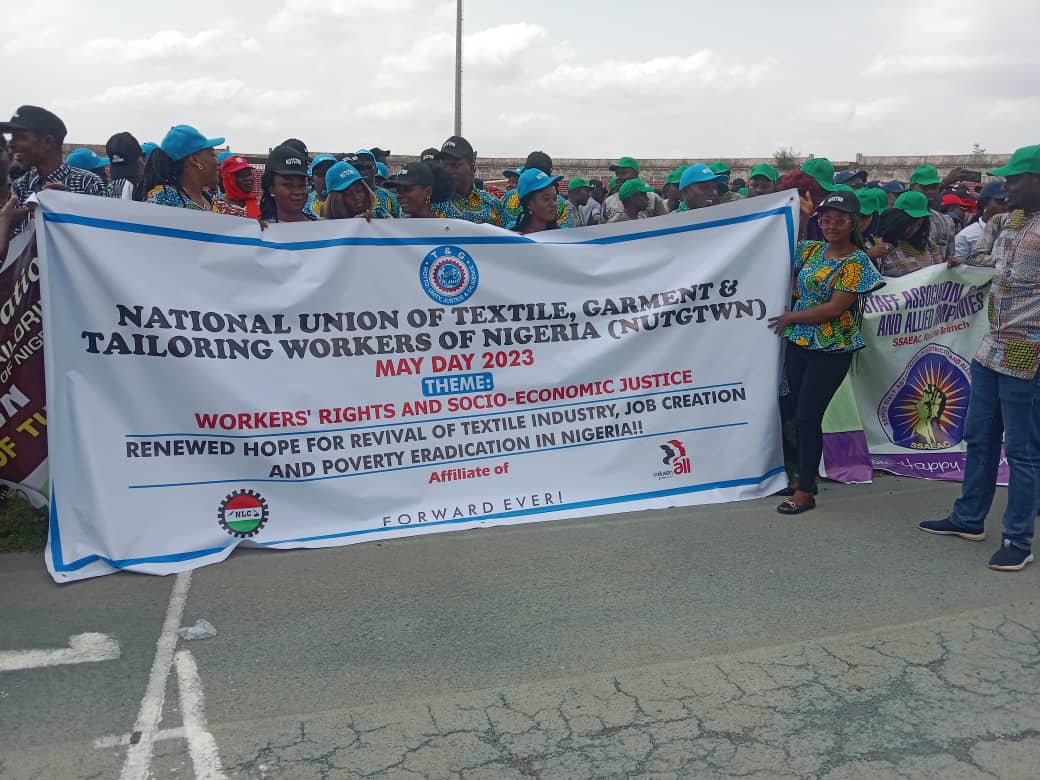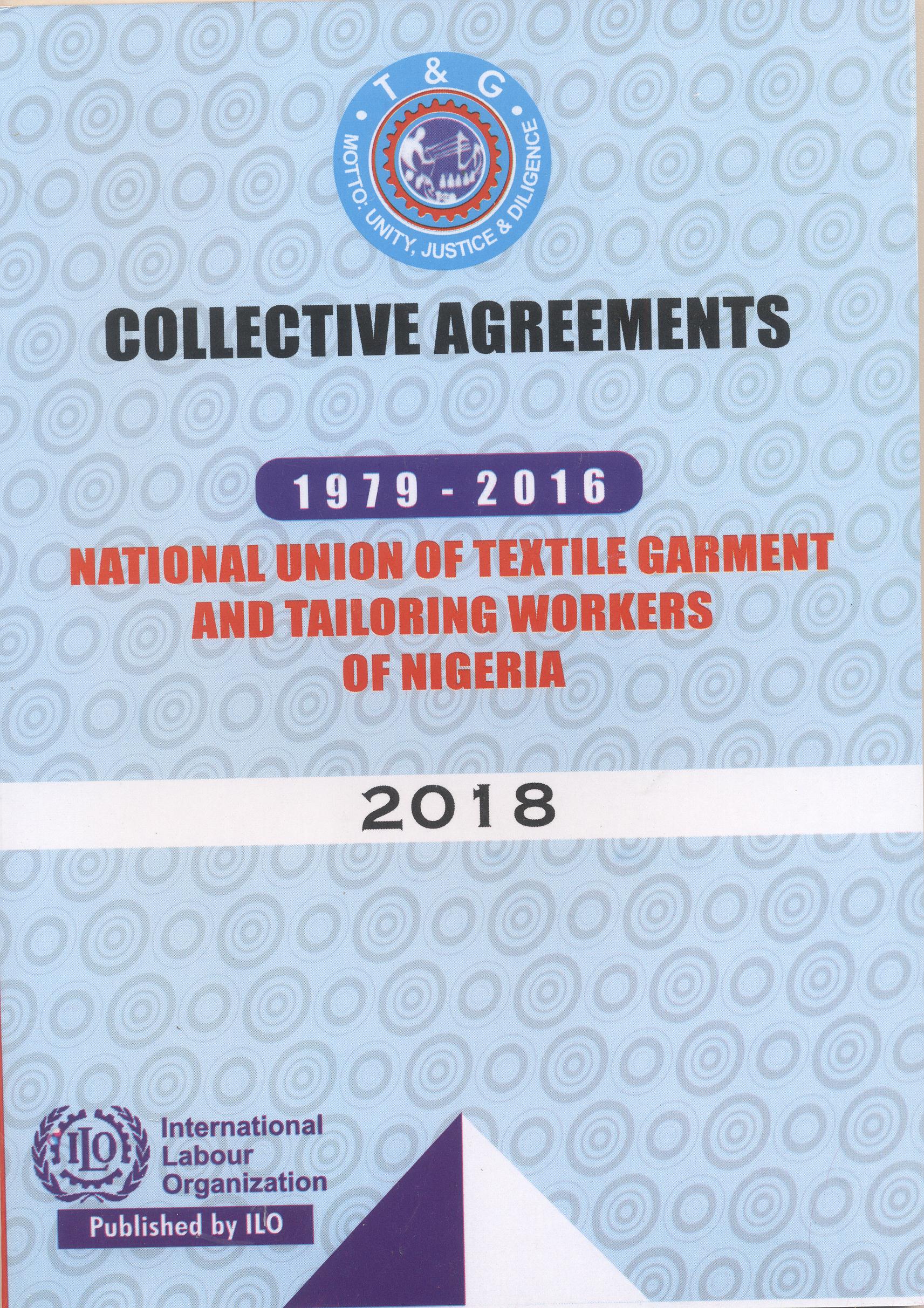
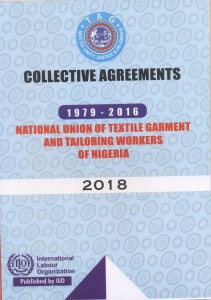
Collective agreement is a signed document containing the outcome of negotiation between the management or representative of Employers association and the Workers representative or the Union. This booklet documents the agreements reached between the National Union of Textile, Garment and Tailoring Workers of Nigeria (NUTGTWN) and Nigeria Textile and Garment and Tailoring Employers Association (NTGTEA) since formation as an industrial union in 1978.
Our union realized at formation that institutionalizing the process of wage negotiation is mutually benefiting workers and employers and is the surest means to ensure decent wage for members and mitigate the burden of poverty.
In spite of the challenges facing the industry NUTGTWN has consistently engaged with the Nigeria Textile Garment and Tailoring Employers Association (NTGTEA) over the years.
The Union continues to record major achievements in the yearly review of the collective agreement as it affects allowances and basic salary. The negated items includes basic salary, allowance that includes; Transport Allowances, Food subsidy, Outstation allowance, night allowance, Incremental rate, Medical allowance and Furniture allowance among others.
These remarkable achievements in the areas of improved wages in the sector have largely been made possible by the collective efforts of members, past and present offices bearers and the resilient and dogged fighting spirit that has become the hallmark of the Union.
It is important to note that the procedural agreement which regulates the relationship between Worker and the Employer has over the years been the life blood of the Union in terms of the management of the routine conflict at work. It also defines the processes and procedure for the smooth relationship between the union and the management in the respective factories and also with textile employers as a group.

On the occasion of the union’s 40th anniversary, we acknowledge the enormous unforgettable sacrifice of our founding comrades in putting in place an enduring mechanism for wage settlement and conflict resolution in the textile sector. We also salute the employers through the Textile Employers Association for their respect for the spirit of collective bargaining in the industry. We are proud to say that textile industry is the sector that has been immune from wage related crisis because of the mutual respect for collective agreements over the years.
We also extend our profound appreciation to International Labour Organization (ILO), Nigeria, Ghana, Liberia, Sierra Leone and Liaison office for ECOWAS for supporting the production and publishing of this booklet. We remain indebted to the ILO for the enormous support over the years for capacity building, women development, organizing informal workers and organizing in general.



